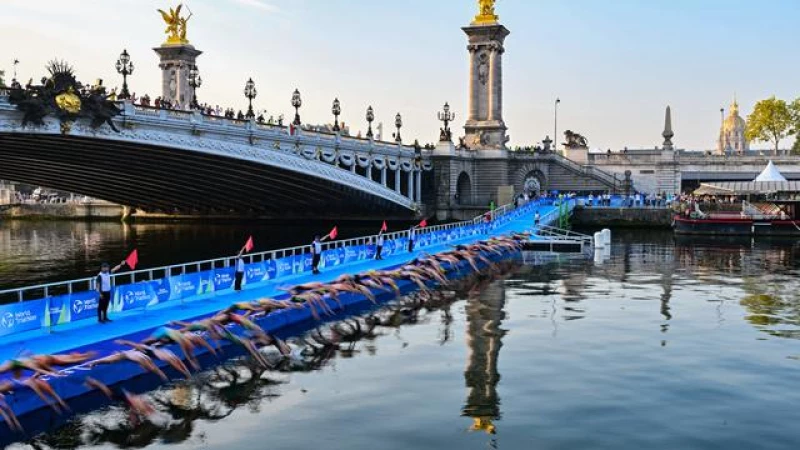The 2024 Paris Olympics triathlon event's swimming segment faces potential disruption due to poor water quality in the Seine River. Tony Estanguet, head of the Paris 2024 Organizing Committee, acknowledged the challenge posed by water pollution and hinted at a possible delay for the swimming competition.
Between September 2023 and March 2024, Surfrider Foundation Europe conducted 14 tests on water samples from two locations along the river. The results revealed that all but one sample exhibited inadequate water quality levels.
Olympic triathlons consist of a .93-mile (1.5 km) swim, a 24.8-mile (40 km) bike ride, and a 6.2-mile (10 km) run. The 2024 Olympic triathlon event is scheduled for July 30 and 31, commencing with athletes diving into the water from the Pont Alexandre III bridge. Following two laps of swimming, competitors will ascend 32 stairs to the bridge's summit to start the cycling leg, culminating in the final running segment.
Surfrider Foundation shared in a social media post that pollution levels at the Alexandre III Bridge are alarmingly high, casting a shadow over the water quality of the Seine River.
The organization attributed the pollution to rainfall and sewage malfunctions, warning of potential infections like staphylococcus due to the presence of harmful bacteria. They called on stakeholders to take action before athletes engage in water activities in the river.
Addressing concerns about E.coli, Estanguet assured Sport Accord this week that efforts are underway to address the issue,
"When we chose to host this competition in the Seine, we knew it would be a significant challenge. However, in collaboration with the authorities, there is a substantial investment program in place. When we consider the legacy, this project is truly remarkable," he stated.
Estanguet expressed confidence in holding the event in the Seine, mentioning contingency plans in place and the ability to postpone races in case of rain, especially since the event is scheduled at the start of the Olympics.
"Nevertheless, there is a risk. There's always a risk," he acknowledged. "Having been an athlete myself, I've been to World Championships that were delayed due to floods. In a sport that relies on natural conditions, adaptation is key. It's part of the flexibility required in my sport."
During the previous month, contamination of water in a different major European river nearly disrupted a sporting event. An environmental organization called River Action revealed that portions of the River Thames in London displayed "alarmingly high" levels of E. coli. In response, they collaborated with the organizers of the Oxford-Cambridge Boat Race to establish safety guidelines for rowing in the river.
Despite the concerning findings, the annual boat race proceeded as planned, with E. coli levels detected to be as much as 10 times higher than the threshold considered the worst for public bathing by U.K. authorities.
CBS News has attempted to contact the Paris 2024 Organizing Committee and the International Olympic Committee for additional input. Their response is currently pending.







